Part 78: Victoria: Chapter 12 - Weltkrieg: 1854 - 1857
1854 - 1857: Weltkrieg
The Reichstag backs Friedriech's motion to have the Modernizers removed from power and replaced with Otto von Bismarck's Militarist Junkers. To the shocked members of the Reischtag, upon learning of the declaration of war, it seems as though the entire world has decided to attack Swabia at once, and the description 'War of the World' - Weltkrieg - is coined.

The Militarists begin an immediate program of conscription. The plan is to raise 1 million new soldiers for the reserve and 30 new standing divisions. Swabia's undersized artillery corps are given particular attention.

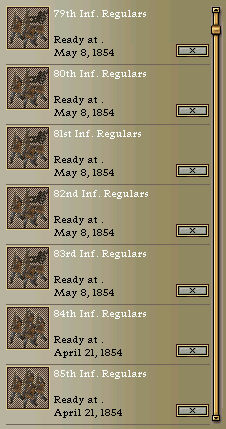
To pay for this massive expansion of the army, the economy is geared up for total war, with a high war taxes levied on the lower strata of society.
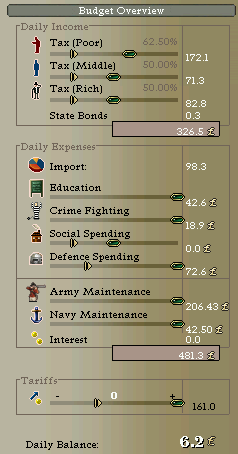
Bismarck himself sets sail back for Swabia, the Baltic fleet fighting its way through the Strait of Gibraltar to a safe harbor in Italy. Once back in Stuttgart, he is made Chancellor by the increasingly ill Friedreich I and charged with the task of winning Swabia some allies for this war.


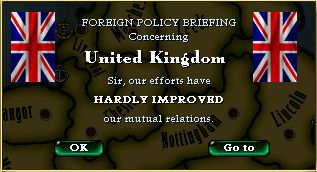
In Lithuania, the Ukrainian revolution is crushed after years of bloody fighting and Ukraine is re-incorporated into Lithuania. Having lost some half of its population to the independent Russian Republic, the Lithuanian Czar is forced to accept a proposition for a dual monarchy from the Polish government to save his state. The Lithuanian-Polish Commonwealth is created.
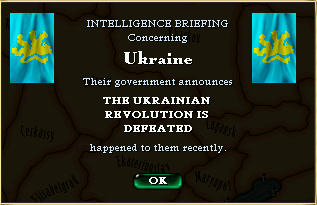

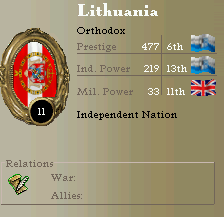
After a more or less organized retreat from Paris, the Swabian line stabilizes and digs in for the inevitable French offensive.

In Dauphine, an Iberian offensive against Grenoble is defeated and forced to retreat towards the coast, where quick action by Swabian troops manages to create a pocket, trapping 17 Iberian divisions. Heavy fighting erupts as 26 Swabian and Dauphinese divisions move in for the kill.

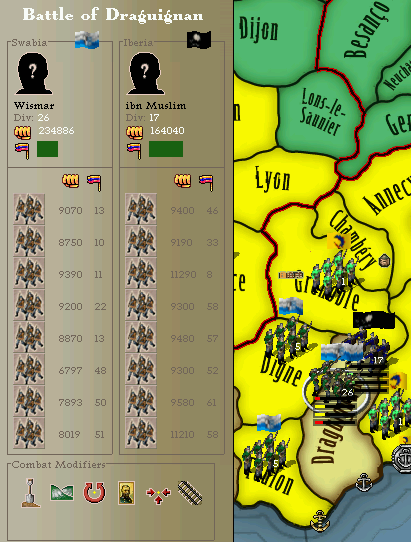
In March of 1854, Italian troops inflict a decisive defeat on the Papal Army, occupying Rome and annexing the Papal State into Italy.
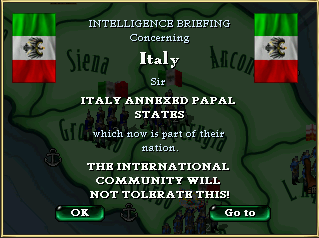
In France, the Swabian line has been forced to retreat further as a result of relentless attacks from French and Iberian army corps. Field Marshal Scharnhorst - promoted as a result of his brave attack on Paris - meets the main French push at Châlons and succeeds in temporarily halting it.
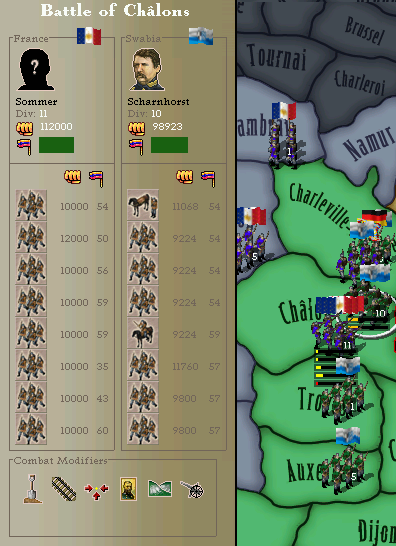
The first of the newly recruited divisions are readied and sent to the west front.

In Dauphine, the Iberians make a desperate attempt to save their trapped army, but are repulsed outside Toulon. The surrounded army finally surrenders in June.
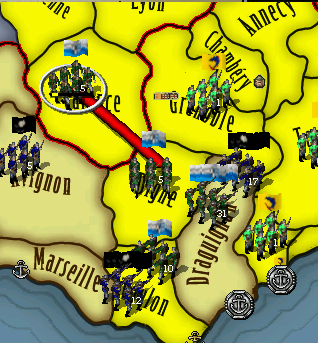

Shortly thereafter, Iberia makes peace with Dauphine, taking a large slice of its westernmost territory.
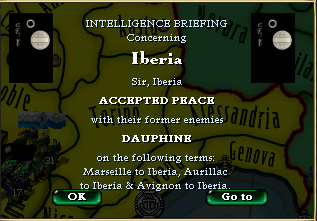
The Austrians begin an offensive in July, forcing the redeployment of fresh troops meant for the west front to the east.
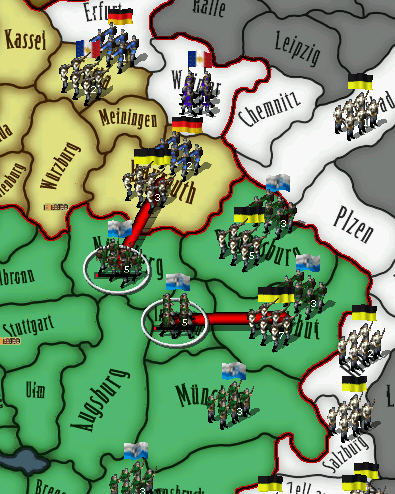
Despite new troops and a spirited defense, Scharnhost is unable to hold on to the occupied French territories and orders a retreat across the border. By September, France has regained control of all her territories.

Meanwhile, alliance feelers to the United Kingdom continue to be rejected, as the Brits instead take the time to invade and annex a Swabian interest zone - the Sultanate of Brunei in the East Indies.
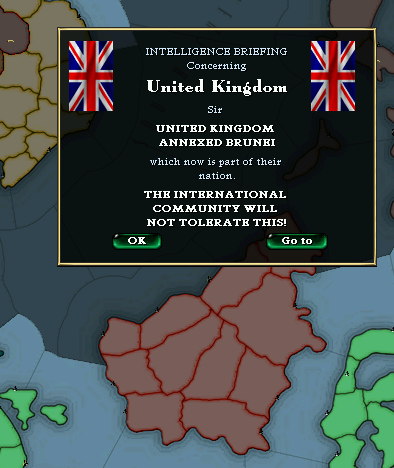
The French launch a major offensive across the border in November, but are stopped at the expense of tens of thousands of losses on both sides.
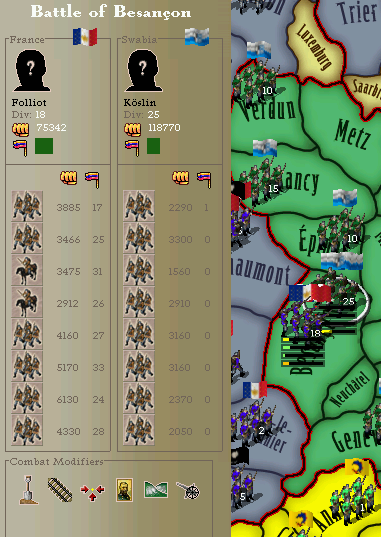
In the east, the Austrians have crossed the border and occupied Landshut, and Austrian troops are pouring into SGF territory towards Würzburg.
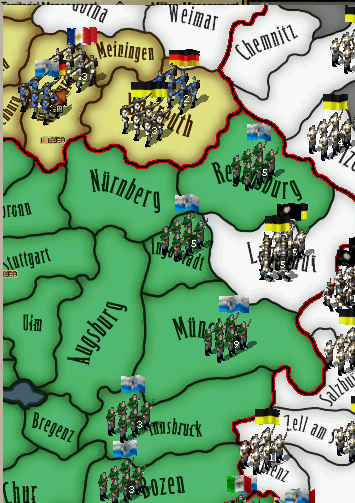
A second round of conscripts to put another 500,000 reserves under arms is begun, though by now Swabia is starting to run out of men that are not working in vital war industries.
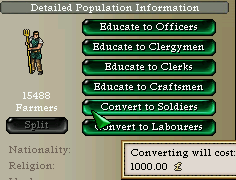
In December, Bismarck scores a minor political victory as he succeeds in bringing Scandinavia into the war on Swabia's side. Scandinavian troops are sent down into Pommern in the hopes of retaking it from Austria.
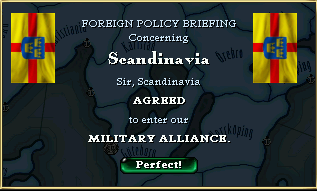
Both fronts at the beginning of 1855. The French have almost entirely occupied the western SGF, and troops have been pulled out of Regensburg, which is deemed hopeless to defend.
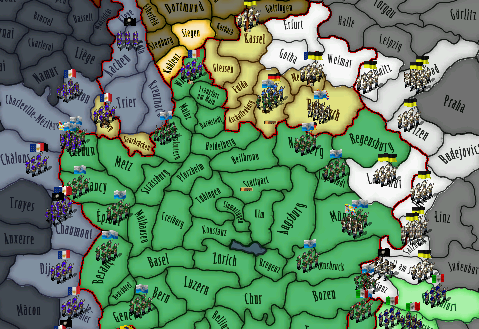
With several French offensives across the border defeated at the cost of heavy losses to the French, Scharnhorst orders a counter-attack into Dijon in March, hoping to widen the line and force the French to draw troops away from Trier and Cleves.
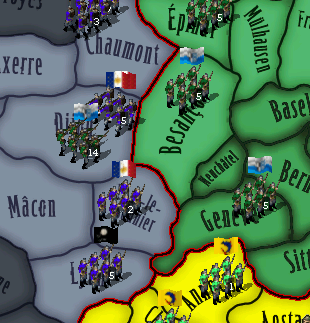
Peace feelers are also made towards Austria, offering several minor border concessions. They are rejected outright.
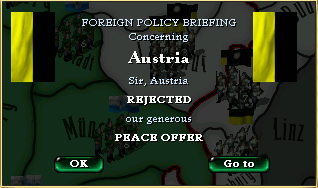
Instead, Italy acceps peace with Byzantium, giving up Malta and Corsica. Shortly thereafter, Italy accepts peace with Iberia and exits the war altogether.
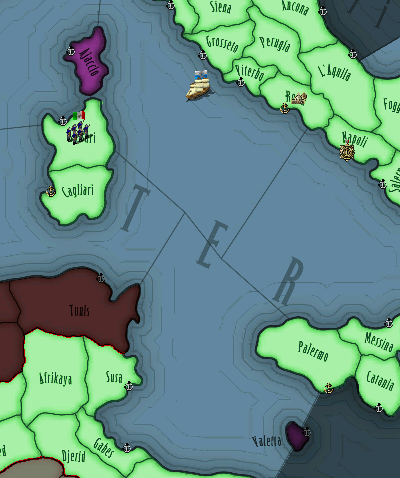

By September, the Dijon offensive has stalled due to an unusually spirited French defense of Mâcon. The Swabian troops are pulled back before French reinforcements can arrive and turn the retreat into a rout. Shortly thereafter, Swabian misfortune continues as the SGF makes peace, giving up nearly its entire western half to France.
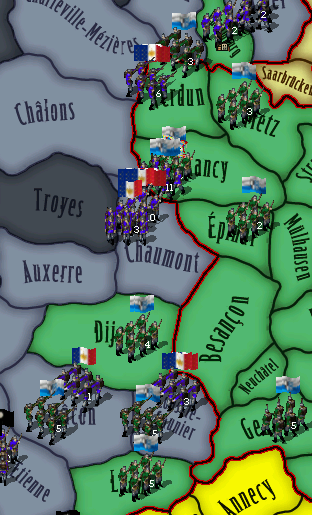
In the wake of the peace, a socialist revolution has spread in an Italy whose armies and royal authority have been severely undermined by the war. In September of 1855, the revolution topples the government in Rome, forcing Guiseppe I Tittoni - ironically enough - to flee into exile in Swabia. With a new Austrian offensive gearing up in the east, Friedreich is unwilling to open a third front, and chooses not to intervene.
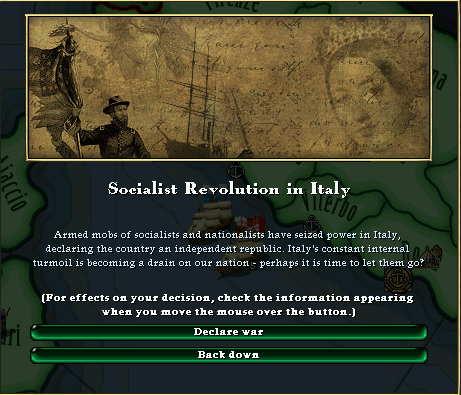
After months of fighting, the Austrian offensive succeeds in breaking through Swabian lines in Ingolstadt, leaving the way open to Stuttgart.
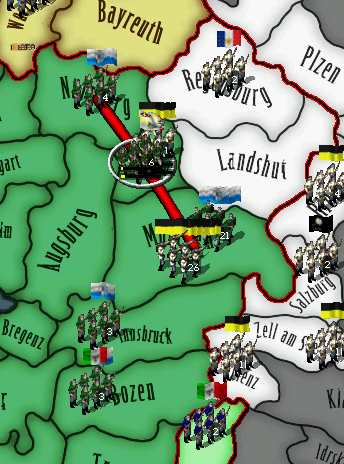
Thus, when a French diplomat offers peace in April of 1856, demanding the prestigious territory Verdun, Friedrich chooses to accept.
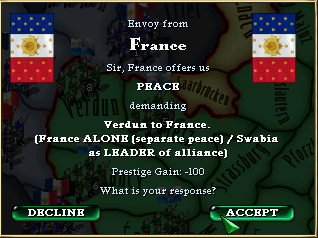
With the western front closed, the army is quickly redeployed towards the east.
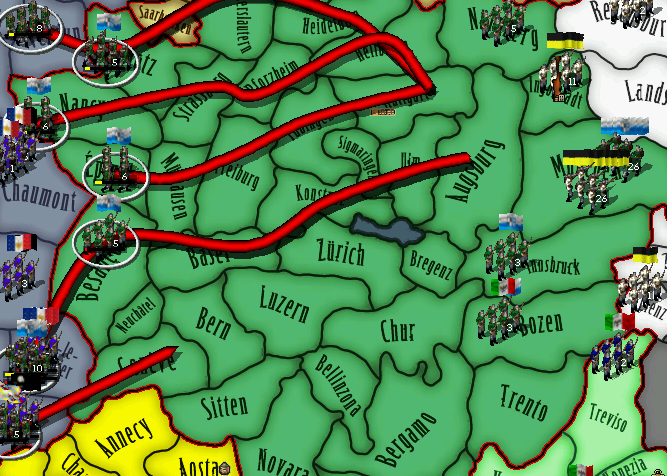
Three years of warfare on such a scale has taken its toll - millions are dead or wounded, and combined with the crushing taxes this has led to bitter resentment among the population, especially in the colonies, resulting in a constant string of uprisings in Kongo, Madgascar and Java.
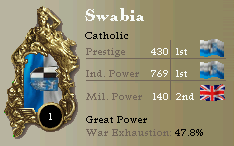

A Byzantine-Iberian fleet inflicts a defeat on the Imperial fleet in July, landing six Byzantine divisions in Lucca. Ten divisions are quickly redirected to stop the Greek advance.
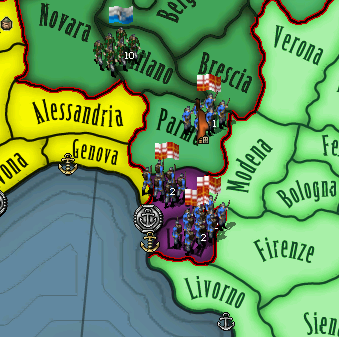
Reinforced by nearly the entire western army, a major offensive begins along the eastern front into Austria in August, inflicting several defeats on the Austrian army.
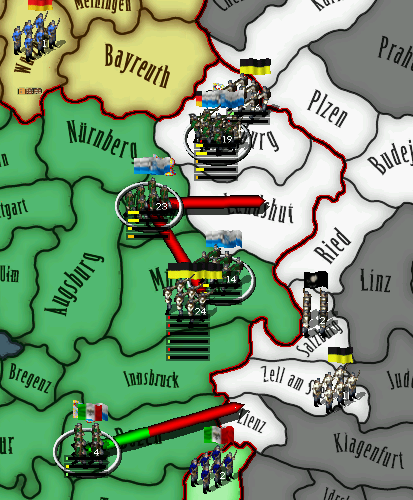
Seeing the way the wind is blowing, Austria comes to the peace table at last. A peace is negotiated between Austria and Swabia in September, and another between Iberia and Swabia in November, ending the war.


The cost of three and a half years of total warfare are estimated to be some 3 million dead in Swabia from war, disease and hunger, not to mention the many wounded and war invalids. In terms of territory, Swabia has lost Verdun, and France has gained the wealthy and coal-rich Rheinland from the SGF. Swabia's dominance over Italy has also come to a close, with the creation of the socialist Italian Republic. Austria's claim to the Imperial throne ended with the mysterious death of Leo XV during the socialist revolution, but a new Pope has taken residence in Vienna, and is sure to become another Austrian puppet in time.

For all its losses, however, it is clear that Swabia could have fared much, much worse. It has rode through the storm, and now it is time to rebuild.
And plan revenge.